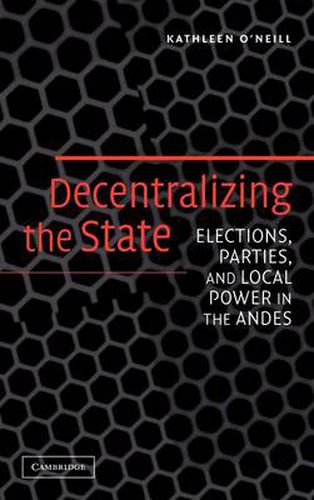Readings Newsletter
Become a Readings Member to make your shopping experience even easier.
Sign in or sign up for free!
You’re not far away from qualifying for FREE standard shipping within Australia
You’ve qualified for FREE standard shipping within Australia
The cart is loading…






This book explores the location and dynamics of power within the state, focusing on a recent wave of decentralizing reforms that have swept across both developed and developing countries in recent years. Variation in the timing of reform across countries only vaguely relates to the genesis of an international consensus pushed by big lenders and development banks or the reemergence of democracy in decentralizing countries. This book develops a theory linking decentralization’s adoption to the electoral concerns of political parties: decentralization represents a desirable strategy for parties whose support at subnational levels appears more secure than their prospects in national elections. The book examines this argument against experiences in Bolivia, Colombia, Ecuador, Peru and Venezuela and speculates on how recent political changes may affect decentralization’s shape and extent in coming years.
$9.00 standard shipping within Australia
FREE standard shipping within Australia for orders over $100.00
Express & International shipping calculated at checkout
This book explores the location and dynamics of power within the state, focusing on a recent wave of decentralizing reforms that have swept across both developed and developing countries in recent years. Variation in the timing of reform across countries only vaguely relates to the genesis of an international consensus pushed by big lenders and development banks or the reemergence of democracy in decentralizing countries. This book develops a theory linking decentralization’s adoption to the electoral concerns of political parties: decentralization represents a desirable strategy for parties whose support at subnational levels appears more secure than their prospects in national elections. The book examines this argument against experiences in Bolivia, Colombia, Ecuador, Peru and Venezuela and speculates on how recent political changes may affect decentralization’s shape and extent in coming years.